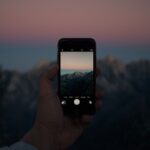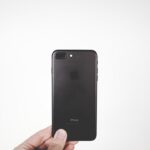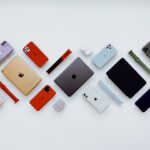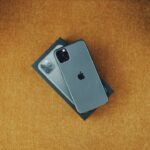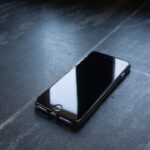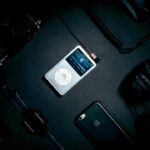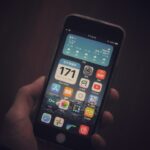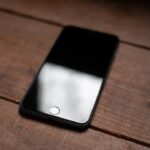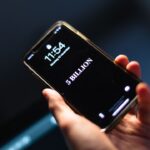Choosing to live without an iPhone is a significant decision that can stem from various motivations, including a desire for simplicity, a need to reduce screen time, or a quest for greater mental clarity. For many, the iPhone represents not just a communication tool but a gateway to a myriad of distractions, social media platforms, and constant notifications that can overwhelm the senses. The decision often begins with a moment of reflection—an acknowledgment that the device, while convenient, may also be contributing to feelings of anxiety or disconnection from the real world.
This realization can lead individuals to consider alternative lifestyles that prioritize face-to-face interactions and mindfulness over digital engagement. The process of detaching from an iPhone can be both liberating and daunting. It requires a conscious effort to break free from the habitual reliance on technology for daily tasks and social interactions.
For some, this means reevaluating their relationship with technology and understanding how it shapes their daily routines. The decision may also involve a commitment to exploring new ways of living that do not revolve around the constant availability of information and communication that smartphones provide. This journey often leads to a deeper understanding of personal values and priorities, as individuals seek to cultivate a lifestyle that aligns more closely with their aspirations for authenticity and presence in their lives.
Key Takeaways
- Living without an iPhone is a conscious decision that requires commitment and determination.
- Navigating social and dating apps without an iPhone may require using alternative devices or platforms.
- Finding alternative ways to stay connected, such as using a basic phone or computer, is essential for maintaining relationships.
- Managing work and productivity without an iPhone may involve using other tools and methods for communication and organization.
- Overcoming FOMO and digital dependency is a challenge that can be addressed through mindfulness and embracing offline activities.
Navigating Social and Dating Apps Without an iPhone
In a world where social and dating apps dominate the landscape of human interaction, living without an iPhone can present unique challenges. Many people rely on platforms like Tinder, Bumble, or Instagram to meet new friends or potential partners, making it seem almost impossible to navigate social circles without these digital tools. However, this absence can also encourage individuals to seek out more traditional methods of connection.
Engaging in community events, joining clubs, or participating in local activities can foster genuine relationships that are often more fulfilling than those formed through swipes and likes on a screen. Moreover, the absence of an iPhone can lead to a more intentional approach to dating. Without the instant gratification of messaging apps, individuals may find themselves investing more time in getting to know someone before meeting in person.
This can lead to deeper conversations and more meaningful connections. For instance, instead of exchanging quick messages over an app, one might opt for a phone call or even a face-to-face meeting at a coffee shop. This shift not only enhances the quality of interactions but also allows individuals to develop their social skills in real-world settings, which can be incredibly rewarding.
Finding Alternative Ways to Stay Connected

Living without an iPhone necessitates finding alternative methods to maintain connections with friends and family. Traditional forms of communication, such as phone calls and handwritten letters, can become more prominent in this context. While it may seem outdated to some, receiving a letter in the mail can evoke a sense of nostalgia and personal touch that digital messages often lack.
This approach encourages individuals to invest time and thought into their communications, fostering deeper relationships based on genuine interest rather than superficial exchanges. Additionally, utilizing other devices such as tablets or laptops can help bridge the gap left by the absence of an iPhone. These devices can facilitate video calls through platforms like Zoom or Skype, allowing for face-to-face interactions even when physical distance separates individuals.
By prioritizing quality over quantity in communication, one can cultivate stronger bonds with loved ones while also reducing the overwhelming influx of notifications that often accompany smartphone use. This shift encourages a more mindful approach to staying connected, focusing on meaningful conversations rather than fleeting interactions.
Managing Work and Productivity Without an iPhone
| Metrics | Data |
|---|---|
| Tasks Completed | 25 |
| Time Spent on Work | 10 hours |
| Productivity Level | High |
| Distractions Avoided | 15 |
In today’s fast-paced work environment, smartphones are often seen as essential tools for productivity. However, living without an iPhone can lead to innovative strategies for managing work and enhancing productivity. For instance, individuals may find themselves relying more on desktop computers or laptops for work-related tasks, which can create a clearer boundary between work and personal life.
This separation can help reduce distractions that often arise from constant notifications and social media temptations present on smartphones. Moreover, without the convenience of an iPhone’s apps, individuals may turn to more traditional organizational methods such as planners or bullet journals. These analog tools not only help in tracking tasks and deadlines but also encourage mindfulness and reflection on one’s goals and priorities.
The act of writing things down can enhance memory retention and foster a sense of accomplishment as tasks are completed. Additionally, this approach allows for greater focus on one task at a time, promoting deep work rather than the fragmented attention that often accompanies multitasking on digital devices.
Overcoming FOMO and Digital Dependency
Fear of missing out (FOMO) is a pervasive phenomenon in the age of social media, where individuals constantly compare their lives to curated online personas. Living without an iPhone can serve as a powerful antidote to this anxiety-inducing mindset. By stepping away from the digital noise, individuals can cultivate a greater appreciation for their own experiences without the constant distraction of what others are doing online.
This shift allows for a more authentic engagement with life’s moments, fostering gratitude and contentment rather than envy. Overcoming digital dependency is another crucial aspect of living without an iPhone. Many people find themselves mindlessly scrolling through feeds or checking notifications out of habit rather than necessity.
By eliminating the smartphone from daily life, individuals are forced to confront their reliance on technology for entertainment and validation.
This confrontation can lead to healthier habits as they seek out alternative sources of fulfillment—whether through reading books, engaging in outdoor activities, or pursuing creative endeavors. The process of rediscovering joy outside the digital realm can be transformative, leading to a more balanced and enriched life.Exploring the Benefits of Living Without an iPhone

The benefits of living without an iPhone extend far beyond mere convenience; they encompass profound changes in lifestyle and mindset. One significant advantage is the increased presence in daily life. Without the constant pull of notifications and social media updates, individuals often find themselves more engaged in their surroundings and relationships.
This heightened awareness can lead to richer experiences—whether it’s savoring a meal with friends or enjoying nature during a hike—allowing for deeper connections with both people and the environment. Additionally, living without an iPhone can foster creativity and self-discovery. Freed from the distractions of endless scrolling and digital consumption, individuals may find themselves exploring new hobbies or interests that they previously overlooked.
Whether it’s painting, writing, or learning a musical instrument, this newfound time and mental space can lead to personal growth and fulfillment. The absence of an iPhone encourages individuals to tap into their innate creativity and pursue passions that resonate with their true selves.
Embracing Offline Activities and Hobbies
Without the lure of an iPhone, individuals often rediscover the joy of offline activities and hobbies that may have been neglected in favor of screen time. Engaging in physical activities such as hiking, biking, or practicing yoga not only promotes physical health but also enhances mental well-being by reducing stress levels and increasing endorphins. These activities provide opportunities for social interaction as well; joining local sports teams or fitness classes can foster community connections that are often lacking in digital spaces.
Moreover, embracing offline hobbies such as gardening, cooking, or crafting allows individuals to cultivate skills that bring satisfaction and joy. For example, gardening not only provides fresh produce but also serves as a therapeutic activity that connects individuals with nature. Cooking meals from scratch encourages mindfulness and creativity in the kitchen while also promoting healthier eating habits.
These offline pursuits offer tangible rewards that contribute to overall happiness and fulfillment—benefits that are often overshadowed by the allure of digital distractions.
The Impact on Mental Health and Well-being
Living without an iPhone can have profound effects on mental health and overall well-being. The reduction in screen time often leads to decreased anxiety levels as individuals become less exposed to the pressures of social media comparison and constant connectivity. Studies have shown that excessive smartphone use is linked to increased feelings of loneliness and depression; thus, stepping away from these devices can create space for improved mental clarity and emotional stability.
Furthermore, the intentionality that comes with living without an iPhone fosters self-reflection and personal growth. Individuals may find themselves more attuned to their thoughts and feelings without the constant barrage of external stimuli vying for their attention. This introspection can lead to greater self-awareness and emotional resilience as they learn to navigate life’s challenges without relying on digital distractions for comfort or validation.
Ultimately, this journey toward a more mindful existence can result in enhanced mental health outcomes and a deeper sense of fulfillment in everyday life.
If you are a gay individual without an iPhone, you may be interested in reading more about the terms and conditions of owning an iPhone. Check out this

